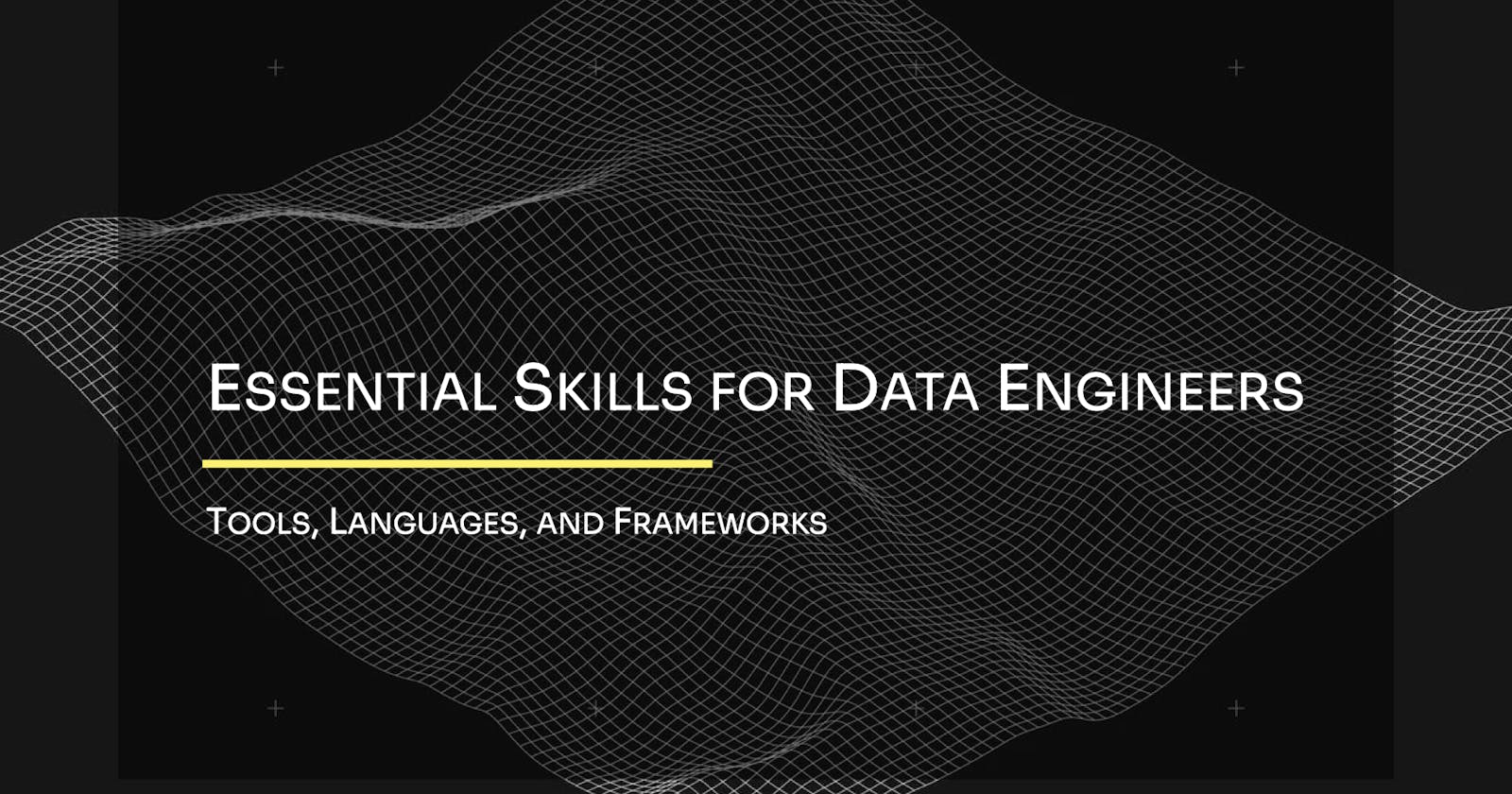Essential Skills for Data Engineers: Tools, Languages, and Frameworks
A Look at Spotify's Use of Apache Airflow and the Expertise Required in Financial Services
TLDR: This article explores the essential skills required for data engineers to succeed, including proficiency in tools, languages, and frameworks. It provides real-world examples of these skills used in the music streaming and financial services industries. The article emphasizes the importance of staying up-to-date with the latest trends and technologies to excel as a data engineer and significantly impact organizations.
Data engineering is a complex field that requires a combination of technical skills and domain knowledge. This article will explore essential skills data engineers need to succeed, including proficiency with tools, languages, and frameworks. We'll also look at real-world examples of how these skills are used in different industries.
Tools, Languages, and Frameworks
Data engineers use various tools, languages, and frameworks to collect, process, and analyze data. Here are some of the essential ones:
Apache Hadoop: Hadoop is an open-source framework for distributed storage and processing large datasets. Data engineers use Hadoop to manage and process data across multiple servers.
Apache Spark: Spark is a fast and powerful open-source engine for big data processing. It supports various programming languages, including Java, Scala, and Python, and can be used for batch processing, stream processing, and machine learning.
Apache Airflow: Airflow is an open-source platform to programmatically author, schedule, and monitor workflows. It allows data engineers to create and manage data pipelines in a repeatable, scalable, and maintainable way.
SQL: Structured Query Language (SQL) is a programming language for managing and manipulating relational databases. Data engineers must be proficient in SQL to work with databases and perform data analysis.
Python: Python is a versatile and powerful programming language used extensively in data engineering. Data engineers use Python to process, automate, and build data pipelines.
Git: Git is a version control system used for software development. Data engineers use Git to manage code changes and collaborate with other team members.
Spotify's Use of Apache Airflow
Spotify is a music streaming service that relies heavily on data to provide personalized recommendations to its users. The company's data engineering team uses Apache Airflow to manage its data pipelines.
With Airflow, Spotify's data engineers can define and schedule data workflows as code. This makes it easy to automate data collection, processing, and analysis. Airflow also visually represents the workflows, making monitoring and troubleshooting issues easy.
One of the key benefits of Airflow is its extensibility. Spotify's data engineers have built custom plugins for Airflow that allow them to integrate with other systems and services, such as AWS and Kubernetes. This has helped the team to streamline its data pipelines and improve efficiency.
Skills Required for Data Engineers in Financial Services
Data engineers working in financial services require unique skills and expertise. In addition to the technical skills listed above, they must also know about regulatory compliance and risk management.
Financial services organizations must comply with a wide range of regulations, including data privacy laws, anti-money laundering laws, and regulations related to financial reporting. Data engineers must be familiar with these regulations and ensure their data pipelines are compliant.
Risk management is also a critical concern for financial services organizations. Data engineers must be able to design data pipelines that are secure, reliable, and scalable while minimizing the risk of data breaches or other security incidents.
Conclusion
Data engineering is a challenging and rewarding field that requires a diverse set of skills and expertise. By mastering the tools, languages, and frameworks above, data engineers can build efficient and scalable data pipelines that drive business value.
Real-world examples, such as Spotify's use of Apache Airflow and the unique skills required for data engineers in financial services, demonstrate the importance of staying up-to-date with the latest trends and technologies. By continuously learning and expanding their skillset, data engineers can excel in their roles and significantly impact their organizations.
